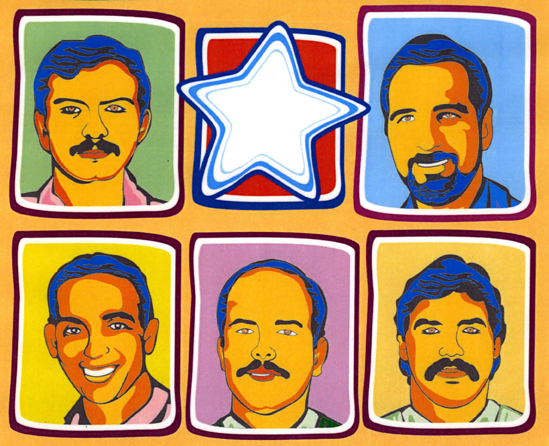By Rene Gonzalez
In August 1962, I was an ordinary Cuban child who had just turned eight years old. I can still remember the commotion all over Havana after someone sailed a boat to within a mile of the city's coastline and fired a cannon at a hotel. They then turned north and headed for safe haven in Miami.
That experience repeated itself for me and for my four comrades, who are still in US prisons, as I was until recently. The five of us grew up in Cuba, witnessing the kidnapping and assassination of Cuban fishermen, and the culprits would then return to their safe haven in Miami. A gunboat crew attacked and killed the crew of a Spanish freighter off the coast of Cuba and then returned to their safe haven in Miami. In 1976, two terrorists of Cuban origin, after having organized the bombing of a Cubana airliner which killed 73 people, found safe haven back in Miami. Twenty years later, one orchestrated a bombing campaign against Cuban hotels, which cost the life of an Italian citizen.
No wonder all of us agreed to go to Miami in order to infiltrate and monitor the activities of a section of Cuban-Americans who, for over 30 years, had brought death and suffering on the Cuban people through what should be called terrorist activities designed to bring down our government. No wonder, either, that upon landing in Miami, one of the first groups that I joined was headed by the very guy who had fired the canon on the Havana hotel, back when I was an eight-year-old child.
In May 1998, the Cuban government thought the time had come to engage the US government on the fight against terrorism. Gabriel García Márquez, Colombian author and Nobel Prize winner, was the personal liaison sent by Fidel Castro to the White House with the proposition. As a result of this contact, an FBI delegation went to Havana in June of that year. They were given a dossier on the terrorist groups still operating in Miami, and returned to the US after assuring the Cuban side that something would be done about the issue.
Good to their word, on 12 September 1998 something was done: armed officers burst into my home, threatened and cuffed me, traumatised my family, and took me to prison. The FBI raided the houses and arrested the people who had been monitoring the terrorist activities groups, protected by the US government and operating freely from Miami.
No wonder the five of us were found guilty of all charges after a phoney trial in Miami. No wonder the prosecutors asked the judge to "incapacitate" the defendants so as to prevent them monitoring the activities of their terrorists in the future. No wonder, on 14 December 2001, the Judge obliged:
'Whether terrorism is committed against innocents in the United States or Cuba, Israel or Jordan, Northern Ireland or India, it is evil and it is wrong, but the terrorist acts by others cannot excuse the wrongful and illegal conduct of this defendant or any other'.
A further punishment by the US government was inflicted on my wife Olga, who along with Adriana Perez, the wife of Gerardo Hernando, were arbitrarily denied visas to visit us for more than 10 years.
And then, after I had served my 15 year sentence, I was was prevented from returning home, and confined to Florida on supervised release, where the cruel irony was lost on the judge who imposed a clause which would guarantee to the prosecution the incapacitation they had asked for:
'As a further special condition of supervised release the defendant is prohibited from associating with or visiting specific places where individuals of groups such as terrorists, members of organizations advocating violence, and organized crime figures are known to be or frequent'.
What makes some terrorists good guys and some others bad guys? Do the lives of Cuban citizens not deserve to be protected? Is there some international legal instrument which bestows upon the United States judiciary the privilege to serve as a protector of terrorism?
While these and many other questions beg for an answer, four Cuban patriots languish in American prisons for the crime of having sacrificed themselves to protect the lives of others.
Every day they spend in jail is a mockery of human decency.
(The Guardian)







